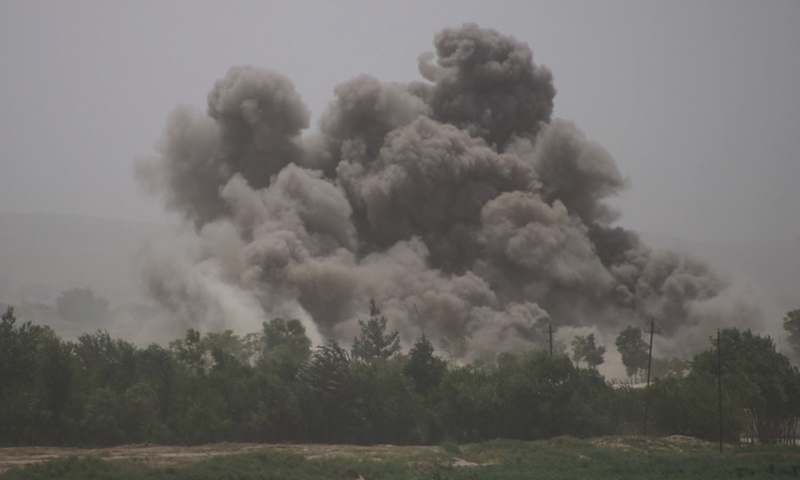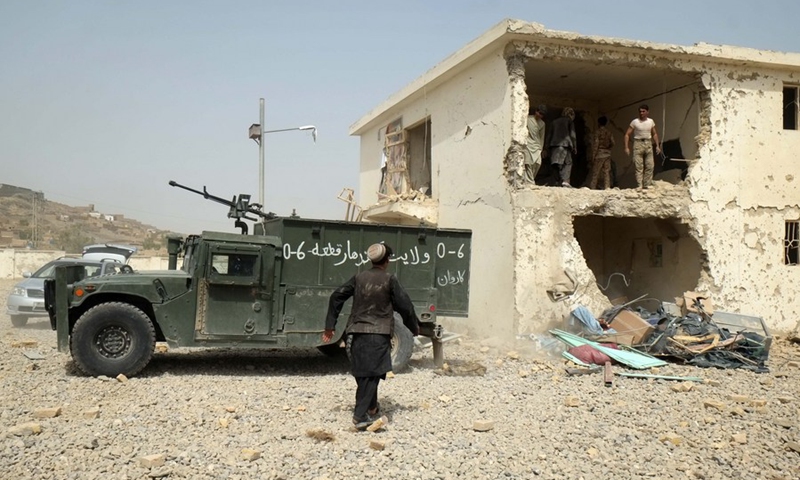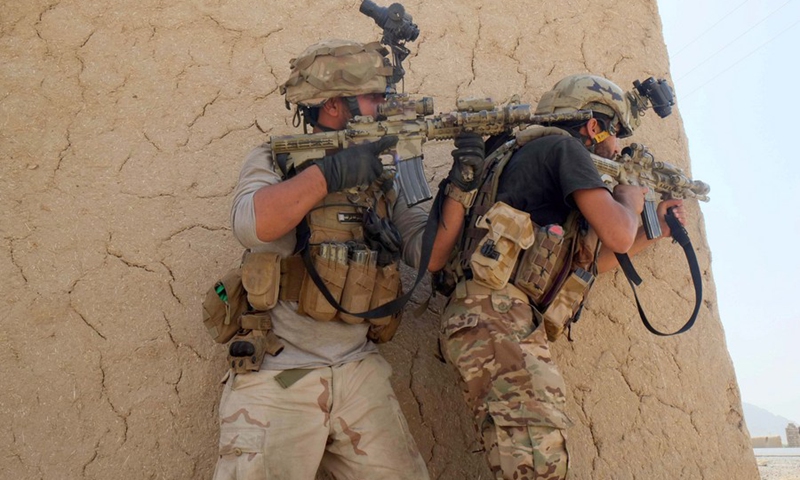Regional stakeholders expect "responsible" U.S. army withdrawal from Afghanistan: Pakistani military official

Photo taken on July 9, 2021 shows smoke rising from Taliban positions after an airstrike by Afghan Air Force on outskirts of Shiberghan city, capital of Jawzjan province, Afghanistan.(Photo: Xinhua)

Afghan security forces inspect the site of a car bombing in Kandahar city, capital of Kandahar province, southern Afghanistan, on July 6, 2021.(Photo: Xinhua)

Afghan security force members take part in a fight against Taliban militants in Panjwai district of Kandahar province, southern Afghanistan, July 5, 2021.(Photo: Xinhua)
All regional stakeholders expected a "responsible withdrawal" of the United States forces from Afghanistan, chief of Pakistani military's media wing said on Saturday.
"The responsible withdrawal was supposed to be after a peaceful transition, but the withdrawal happened in a bit hasty manner," Director General of the Inter-Services Public Relations (ISPR) Major General Babar Iftikhar told a local news channel.
The U.S. army is in the process of leaving Afghanistan and the withdrawal is expected to be completed by Aug. 31, following which all regional stakeholders have to sit together and find a solution to the Afghan issue in consultation with the Afghan leadership, he added.
Answering a query about the future presence of the United States in the region, the official said regional powers are "very well capable of solving Afghan issue if we sit down together," and there is no need for the United States in this matter.
Talking about his country's role to solve the Afghan issue, Iftikhar said that Pakistan tried to help solve the Afghan issue sincerely and it did everything within its capacity to facilitate the peace process.
"Afghan peace process has many aspects where it should be understood that Pakistan was only a facilitator and not a guarantor in the process ... we needed to understand that it would be Afghans' own decision and would not be dictated by any foreign party," he added.
The official said Pakistan has no favorites among Afghan stakeholders, and the decisions are to be taken by the Afghans. "Afghans have the capacity and capability to decide their future course themselves."
Talking about the security measures taken by the Pakistani military to control the infiltration of militants from Afghanistan into Pakistan, the official said that Pak-Afghan border security and management has been beefed up and the 2,611-km border has been 90 percent fenced whereas the remaining areas are either at high altitude or in glaciated places.
"The spillover effect may come to Pakistan...We were very well aware of that and took many measures to cope with the situation," the ISPR chief said.
